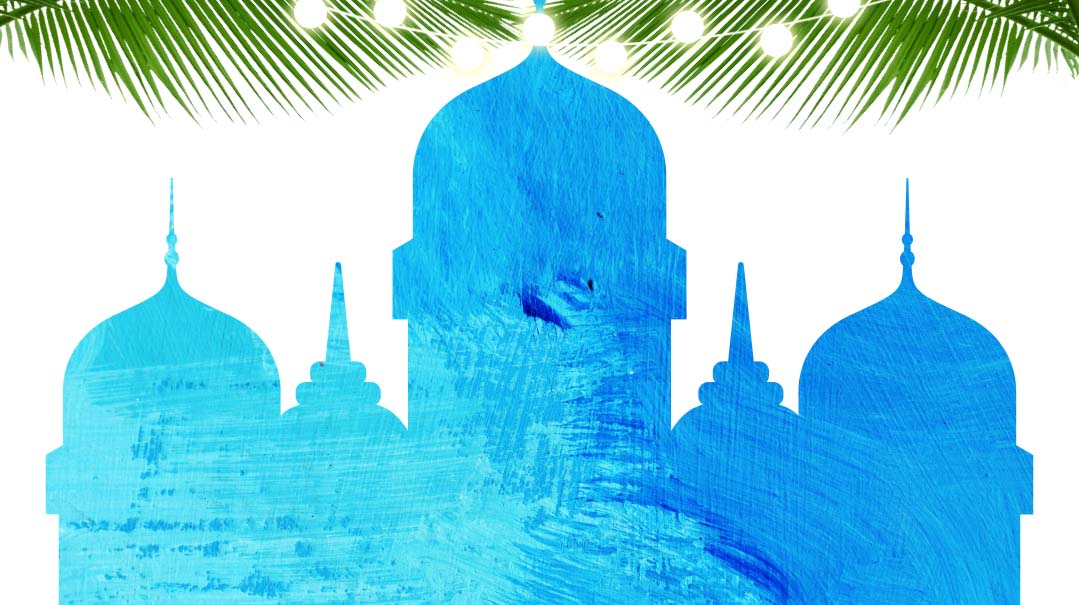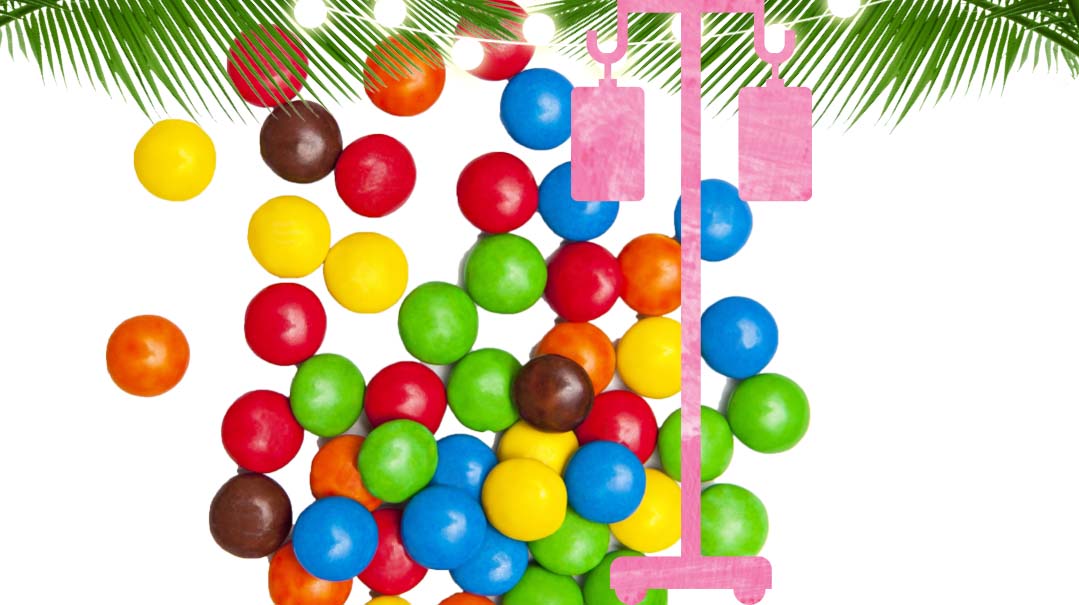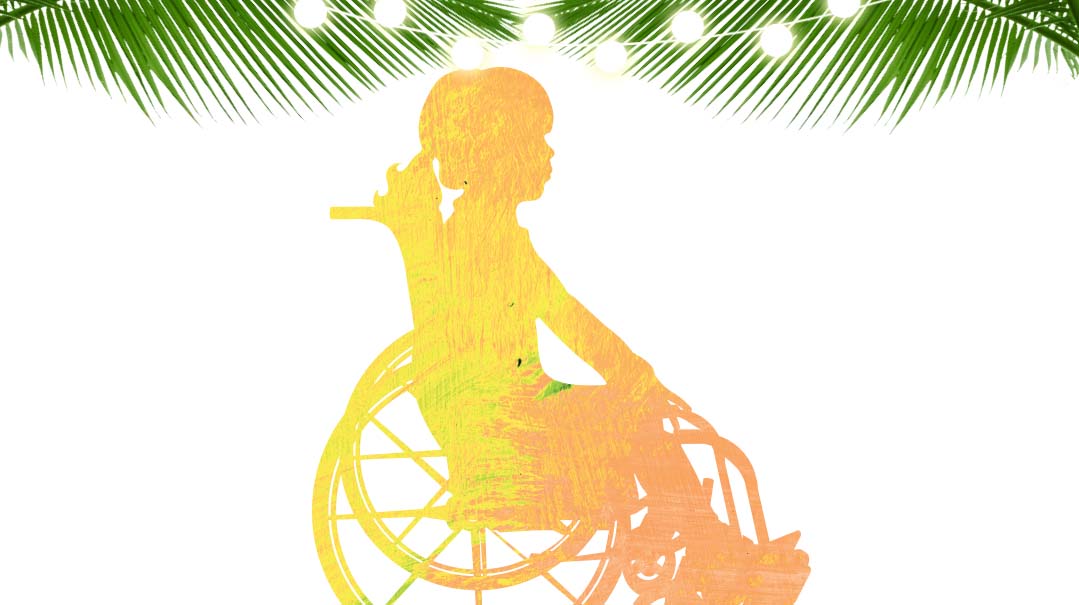Escape to Ever After

The stranger and Ta looked at each other. Both burst out laughing. The man opened his arms wide, got up, and threw them around Ta

"Can I sit here?”
I glanced up from my desk. A girl I didn’t know stood there. She looked… different. Her glasses could have walked off a page from my Aunt Rina’s high school yearbook. Her stringy blonde hair was gathered in a haphazard ponytail; her chunky, worn sneakers looked totally out of place in a room full of brand-new school shoes.
“Is the seat taken?”
“Oh! Umm… no, not yet.” I’d been so taken aback that I’d forgotten to answer. The girl dumped her stuff into the seat. A worn backpack, a lunch box (who brings a lunch box?) that looked like a hand-me-down from an older brother, and a tissue box.
“I’m Simi,” she said simply. She smiled, revealing braces, as she tilted her head sideways, eyeing me with interest. “I’m new here.”
No kidding, I thought to myself. “W-welcome,” I offered feebly, looking away.
Simi seemed happy with my less-than-gracious response. “Want to come over this afternoon? I’d love to make new friends here. You seem nice! We could play with my dog, Barney, and my pet lizard. Her name’s Cocoa. She’s funny.”
“I-uhhh…” Before I could properly answer, our new teacher walked in. I smiled apologetically and stood up, silent along with the class.
Later, I rushed out to recess before Simi could ask me again. At lunch, I ran to the cafeteria with barely a pause to smile at her. I felt guilty avoiding her, but I didn’t know what else to do. Simi just… wasn’t my type. She seemed to really want to be my friend, but I wasn’t sure I could be that for her. I walked home feeling torn.
“Welcome home, Dassi!” my father’s voice boomed. “How’s sixth grade?”
What was Ta doing home? And who on earth was that bearded, dark-haired man next to him?
“Hi,” I said. “Pretty good, I guess.”
“Wondering why I’m home so early?”
I nodded, feeling a bit shy in front of the stranger.
“This is Rabbi Ravizad,” Ta explained. “He’s here from Eretz Yisrael, and I just happened to bump into him at the grocery store—” The stranger and Ta looked at each other. Both burst out laughing. The man opened his arms wide, got up, and threw them around Ta.
“Moish, I still can’t believe it!” he said, unashamedly wiping a tear from his eye. “I just can’t believe I’m here, in your house, after all these years! And you, a father and a businessman… It’s hard to believe!” He spoke with a slight accent I couldn’t quite place, though his English was perfect. Ta laughed again.
“Aviel, look at you. A rosh mesivta! My important friend! I can’t believe that this guy behind the beard is my pal from all those years ago!”
At this, Rabbi Ravizad’s face grew serious. “Moish,” he said, “you can’t imagine what our friendship meant to me. Really. Even all these years later, I feel I have you to thank for the way I adjusted to school and life here.” His voice was thick with emotion.
Ta’s eyes closed briefly. “No, Aviel. It was you who did so much for me. I might have been your average yeshivah kid, and maybe even a pretty smart cookie, but I didn’t have a lot of self-confidence when we met. You gave me that. You were a true friend to me, all through my struggles in eighth grade. I’m the one who owes you a thank-you.”
Curiosity got the better of me. “How did you become friends?” I wondered aloud. “You’re so different!” Immediately, I felt embarrassed. Had I hurt the man’s feelings? But Rabbi Ravizad smiled warmly.
“Well, it’s quite a story, to tell you the truth. It started… let’s see, some 35 years ago,” he said. I learned forward as he began.
“Aviel, Aviel, wake up!” I turned in my sleep, grunting as Yosef tugged the blanket. “Come, we need to go!”
“But it’s still nighttime… ” I groaned.
“Yes, and the driver is waiting for us outside!” Yosef said. “Let’s go!”
I sat bolt upright. How had I forgotten? Maman had told us just a week ago that we’d be going with her and Babaa on a secret trip. We were not to breathe a word to anyone about it, not even our little sister Esther. And then, last night, I’d caught Maman packing our bags in the kitchen and there were tears rolling down her face. When I’d asked why, she’d told me the truth: that this was no fun outing. We were leaving Iran. Leaving our home, our friends, even Maman Joon, my grandmother. Leaving forever.
Now, Yosef left the room as I got my stuff together. There wasn’t much I could take; we’d have to leave most of it behind. I took one last glance at my room before walking out. I joined my family, silently, as Babaa spoke in whispers to the driver. He pulled out a large wad of cash and handed it to the man, who pocketed it and then pointed his thumb to the back of his pickup truck. We were to climb in there, and lie down, he said. When we were all in, squeezed together, Esther between myself and Maman, he threw blankets over all of us. On top of the blankets, he placed large sacks of rice. I could scarcely breathe.
“Don’t talk,” my father whispered to us. “Just lie still until we get past the border.”
I felt the truck round the corner of our street. Silently, I wished goodbye to my house, my neighborhood, my best friends Yitzchak and Jaques, who’d wonder where I was tomorrow. To all of Shiraz, its beautiful palm trees and lovely homes…
We bumped along the road for about 30 uncomfortable minutes. I was imagining how good it would feel to get out and stretch my legs when I heard a gruff shout.
“Stop!”
The truck jolted to a stop.
“Why are you approaching the border so late at night?” A border guard. Oh, no. I felt Babaa squeeze my hand. Silently, I prayed that the guard wouldn’t find us.
“I’m bringing this rice delivery to my cousin, to his farm in the countryside,” called the driver.
Suddenly, something next to me twitched. It was Esther. And then my three-year-old sister coughed.
“What was that noise? Rice doesn’t do that. I’m going to investigate.” I heard footsteps approaching the back of the truck and squeezed my eyes shut, praying with all my might.
At that very moment, the truck lurched forward and shot down the road.
“Stop! Stop!” came shouts from behind. Gunshots followed. But the driver didn’t stop. He kept right on driving at top speed.
“We made it!” he called back. “We’re over the border!” He drove for a while longer before he stopped. “Get up now,” he yelled. “We camp here for the night.”
He pulled the sacks off the truck and we got out, rubbing our aching limbs. We were to sleep right there, on this lonely mountainside, right under the stars. How I missed my bed that night. But the morning brought a worse surprise: our driver, the smuggler Babaa had paid half his life’s savings to, had left us. We were alone, three children and two parents, on this barren mountain terrain.
The trip continued for many days. We walked to a farm where Babaa paid the farmer for two donkeys. From then on, we rode. Maman, Esther, and Yosef rode on one donkey, while Babaa and I had the other. There were steep mountain passes overlooking perilous cliffs that we had to cross.
“Don’t look down,” Maman always advised. “When Avraham left this very land, he went and G-d led him. G-d will lead us too!”
But one day the donkey stumbled and Esther fell off, nearly tumbling down the cliff. Maman lunged, catching her arm and pulling her up at the last moment, and I saw real fear on my mother’s face. And that was when I knew we needed a miracle to make it to our destination.
Fortunately, we did get a miracle. Many miracles, in fact. We arrived in Vienna, hungry and lost, but were taken in by kind Jews named the Zilbersteins. They found us an apartment where we stayed for several months until the day our visas were finally ready, and for the first time in my nine-year-old life, I boarded a plane.
The excitement I felt as our plane lifted off was incredible. We were headed for America! As the plane coasted through the skies, my thoughts turned to what we’d left behind.
Shiraz had been our family’s home for many, many generations. Life had been good for our parents until the ruler, the Shah, was overthrown, and the new Ayatollah Khomeini was instated in his place. Iran became dangerous for those who’d closely supported the Shah. Still, things were livable for families like ours. Babaa was a doctor; Maman was a school teacher, and Maman Joon lived right nearby, always cooking her delicious rice and choresh that we loved so much.
Then things got harder. Somehow, a rumor spread that Babaa had close ties with the Shah, and we were targeted. Babaa and Maman knew we had to leave Iran. I wondered if America could ever feel like a home to me. I knew a bit of English, but not much. Could I ever make friends? I missed Yitzchak and Jaques.
When we actually reached New York, though, it wasn’t friends I had to think about first. I hardly knew English enough to get around, so I kept getting lost. It was summer, and I’d never experienced such unbearable humidity. Our apartment was small and cramped; Babaa might have been a doctor, but here, he had no job, and didn’t know enough English or have enough money to earn an American medical degree. He opened a small repair shop on our corner and tried to joke, “You see? I’m doing surgeries still. It’s just on bikes instead of people!” But we could tell he joked only to make us smile. Inside, he felt very embarrassed and saddened that he could no longer be a doctor.
When we walked into school the first day, a result of gracious funds gathered by Rabbi Naftali Neuberger in Baltimore, I had to agree with Babaa. I too felt sorry — about all of it. The kids looked nothing like me. My clothes were all wrong, but I knew we couldn’t afford new ones. I spoke little English. And although we had always felt very strongly Jewish, our religious observance and knowledge wasn’t much at that point.
Then, on the second day, a boy approached me.
“Hi, I’m Moish,” he said. He held out his hand and took my bag. “I’ll show you where the lockers are.”
I looked at the boy. He was an absolutely typical American yeshivah kid in every way. Freckled, blue-eyed, and fair-skinned, he sported sneakers and tzitzis that bounced as he walked. With my dark curls, olive-toned skin, dark eyes, and shy smile, I felt very different from this boy. But I followed him.
Moish and I became friends. He taught me English, helped me through classes, and did homework with me. He taught me to play basketball, which I’d never heard of before. And I’lI never forget the day his parents bought me my own 5-speed bike, so I could play and fit in with the other neighborhood boys.
“Why do you do this, Moish?” I asked him one day in seventh grade. He looked at me blankly.
“Do what?”
“This! Being so… kind to me.”
He shrugged, flashed me his sunny smile, and said, “Because I like you. You’re my best friend, why else?”
Moish struggled in eighth grade, when he couldn’t get into any of the mesivtas he wanted to attend. It really hurt him. But I thought he was the best kid who ever walked the planet and I told him so. I made him come play basketball with me every evening to release the stress. Our friendship grew even deeper, and continued to strengthen when we went to sleepaway camp together for the first time that summer.
Moish had helped me find myself in this country.
But when we went to yeshivah…
“I lost touch with the best friend I ever had,” said my father. His eyes shone with unshed tears. As he and Rabbi Ravizad embraced once more, I sat silent. It was hard to believe that the 35-year-old man in front of me had gone through all that. It was crazier than a story — but it was his story.
Suddenly, a familiar image popped to mind. I felt my face grow hot with shame as I pictured Simi, wanting to be my friend. Her friendly, open smile. And me, rejecting her because… her clothes looked different.
Looking at Ta and our guest, now conversing and slapping each other’s backs as they relived old memories, something changed in my heart.
I knew that tomorrow, Simi would have a more open-minded seatmate. Even if it meant I’d be visiting her dog.
Aviel’s experience is based on real stories of the many families who escaped Iran in the 1980s and ‘90s, after the fall of the Shah. Thank you to Orah Eshaghian and Esther Niknava for their input!
(Originally featured in Mishpacha Jr., Issue 878)
Oops! We could not locate your form.



